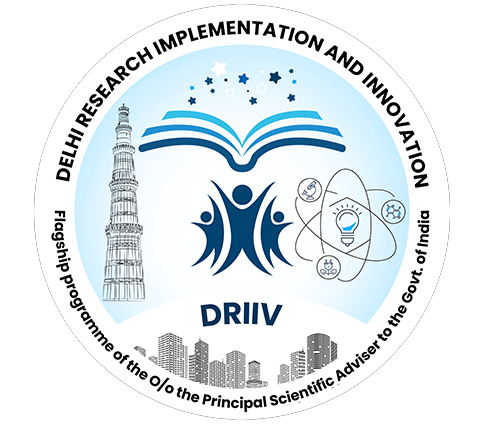 IIIT Delhi
IIIT Delhi




The on-going COVID-19 pandemic has exposed vulnerabilities in the health systems all across the globe. On the other hand, the threat has also provided an extra-ordinary opportunity for a collective multi-sectoral response achieved with systems thinking and coordinated local execution. Most importantly, it has demonstrated the need for an effective digital backdrop that connects stakeholder organizations and ensures a rapid response towards mitigation of epidemics in a concerted manner. This has motivated the formation of the Precision Health, Artificial Intelligence for Healthcare theme of DRIIV.
Highlight: The team has developed #Strainflow Dashboard that analyses changes in the genomic sequencing of the COVID virus and gives an early warning up to two months in advance about the next spike in infection rates. This allows policyholders, across countries, adequate lead time for appropriate interventions. (This system is applicable for any infectious disease that has a potential to cause a pandemic).
 IIIT Delhi
IIIT Delhi
 AIIMS
AIIMS
 CSIR
CSIR
 IGIB
IGIB
 IIT-D
IIT-D
 JNU
JNU
 Ashoka University
Ashoka University
 Google Research India
Google Research India
The following broad activities aligned to "One Health Mission" priority areas are being carried out:
A comprehensive COVID AI stack comprising of 3 dashboards; Strainflow (Model for Genomic Surveillance and Surge Prediction), Evidenceflow (publicly available web-application for emerging trend prediction, based on data mining with AI), VacSim (model for Vaccine resource allocation across India).
COVID-19 data analytics dashboards,
https://federatedhealthplatform.tavlab.iiitd.edu.in/modelzoo
In the process of developing a Scalable, NDHM compliant, and AI-enabled Antimicrobial Resistance Tracker: An AI enabled data port, analytics platform and federated AI platform for predictive modeling in (re) emerging epidemics Data visualizations and temporal tracking of AMR will be carried out upon specific datasets.
A preparedness suite for future pandemic outbreaks collating data and information from a variety of sources; integrates signals from conventional sources such as testing, strains, and vaccination and non-conventional sources such as social media.
AI-powered healthcare stack,
https://federatedhealthplatform.tavlab.iiitd.edu.in/communitydata
The project aims to gather insights by analysing strains in light of the mobility data (obtained through Facebook), health and socio-economic data from National Family and Health Survey is also being analysed to determine temporal relationships of the pandemic period.
An Open Big-Data and Reproducible AI Resource for Early Prediction of Intensive Care Outcomes; the project is running at AIIMS, Delhi, the sandbox is trained on data from AIIMS and publically available ICU data from more than 200 ICUs of USA.
An AI based model for effective screening of vulnerable populations for infectious diseases by social organisations. The platform aims to screen the migrant workers in Mohammadpur, Delhi for tuberculosis and childhood pneumonia.
Decision support system for Mohalla Clinics in Delhi, this AI enabled decision support model is being developed for primary health care, which can be replicated across all the primary health centres of the country.
[The Delhi Corona App of the Govt. of NCT of Delhi which provided citizens with comprehensive resources to combat COVID 19 had components from the WashKaro App developed by the Delhi Cluster AI/ML team for spreading awareness among the masses regarding Water and Sanitation using AI and NLP techniques. Paper presented at WHO regarding the same https://gargicollege.in/wp-content/uploads/2020/05/Webinar-Dept-of-microbiology...pdf]